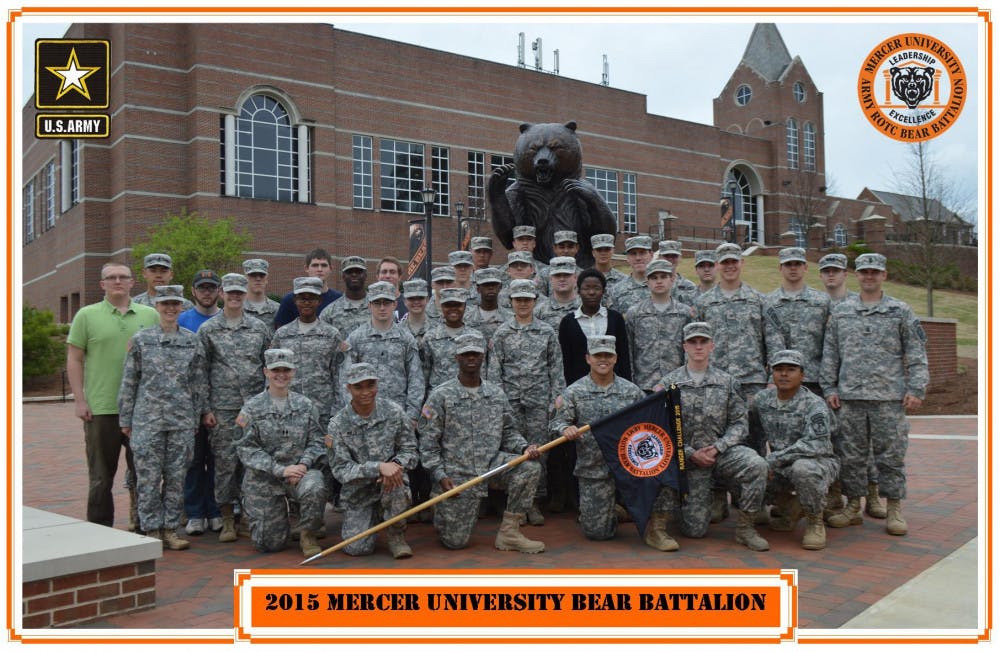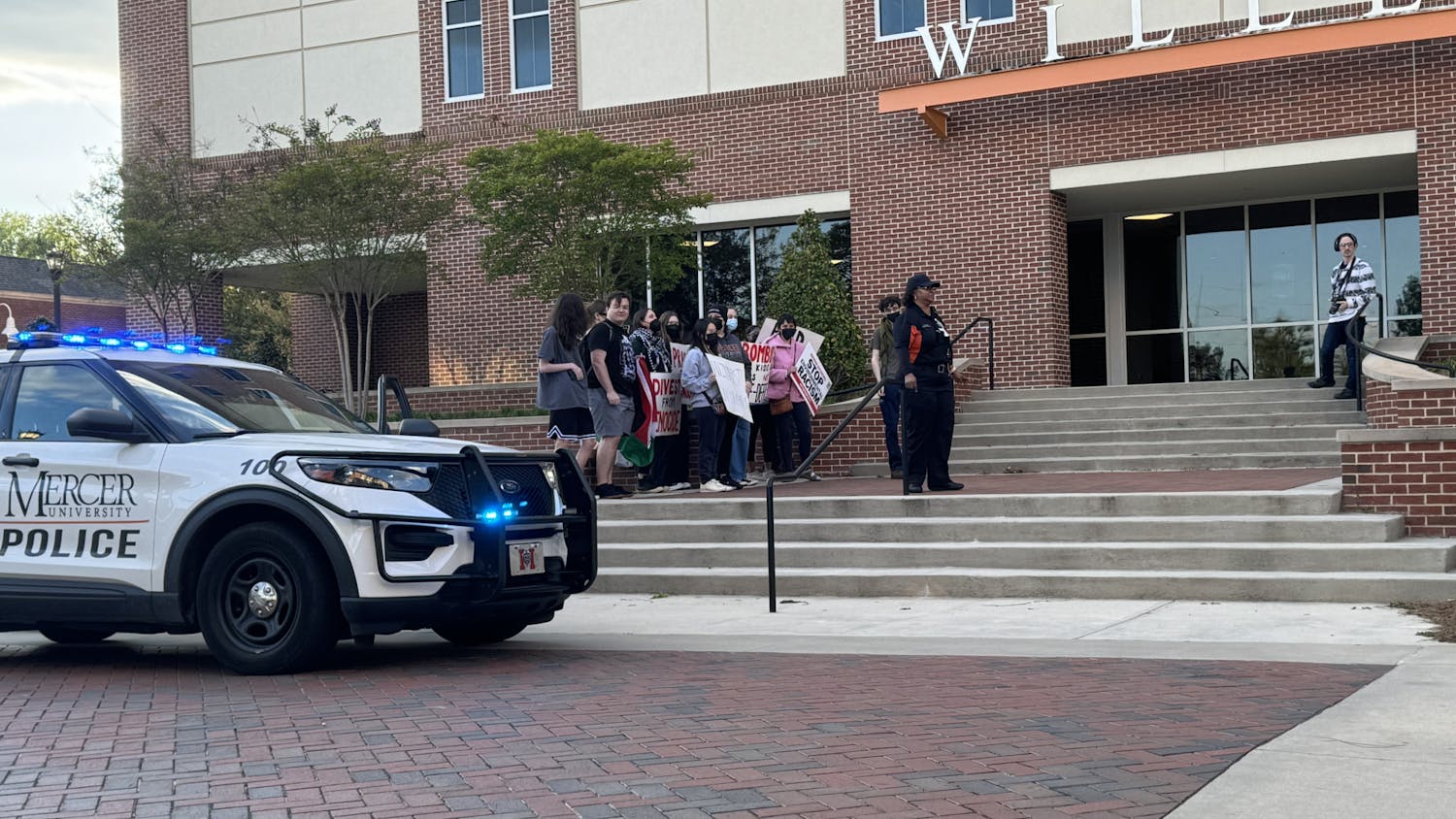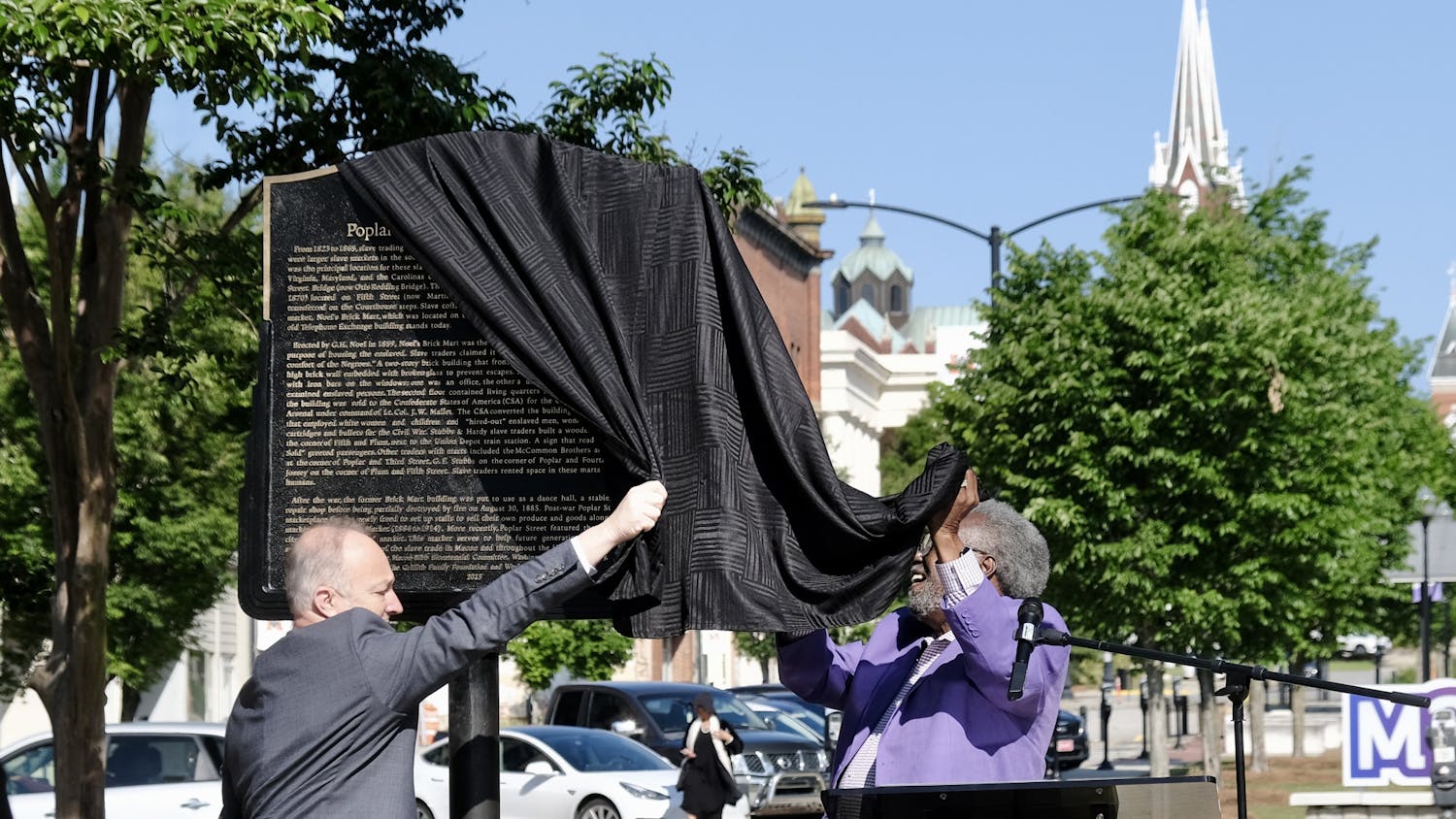Around 6 a.m., some athletes are struggling to wake up. Others may be fumbling for a granola bar before their 7 a.m. practice. But senior Kara Styers and her 39 fellow ROTC cadets are finishing their morning physical training.
Unlike athletes who are forced to block off a certain part of the day set by their coaches for practice and lifting, the ROTC cadets must schedule around these early morning workouts. The ROTC program doesn’t receive priority registration.
The sought-after privilege allows athletes—along with honors program students and those with various disabilities—to have more control over their schedule by getting the first choice of course offerings.
The Interim Dean of the College of Liberal Arts, Keith Howard, explained that ROTC is treated almost like another school within Mercer, like the business or journalism schools, and therefore does not receive early registration.
“We treat ROTC as an academic program. It’s structured very much like a department. And typically, the only academic program that does get priority registration is related to the honors program,” Howard said,
Howard continued by expressing his admiration for ROTC, but mentioned that the time commitments are not quite as demanding as an athlete’s.
“Even though ROTC has extracurricular components that are integrated into that program, it doesn’t have that same intrusive nature on the course scheduling.”
Styers, a cheerleader and ROTC member, said the cadets’ training is rigorous and, at times, interfere with courses. Not only do the members have physical testing on the weekdays, but on Saturday mornings, the cadets report at 7 a.m. to go on what Styers dubbed “the Ruck March.” The cadets frequently go on mandatory training weekend events. They leave early Friday and get back mid-Monday, meaning they’ll miss classes.
Senior Jacob Sole was adamant that ROTC cadets contribute to the school just as much as a Mercer athlete, both financially and as a public face of the school. Sole pointed out that most of the cadets are officially employed by the Army and are on full Army scholarship to attend Mercer, which means they don’t take as much money as athletes do from the university.
“We probably bring in more than most of the sports teams at school, so why are we treated like nothing?” Sole said.
Styers said that while it would definitely help the ROTC program, she remained understanding of the administration’s decision to not expand priority registration to cover the cadets.
“It would help out a lot of people. But I also think there’s an understanding that there are a lot of people already on priority registration. If everyone has it, it’s no longer priority registration,” Styers said.
Cadets are forced to find a time when all 40 members are available to work out with one another. This means that they are limited to the early morning hours, and Sole said that no one likes to get up that early repeatedly, day after day.
“We do it because it’s our job, not necessarily because we enjoy getting up that early or giving up our weekends. It is a job. So we do it,” said Sole.
This year as Mercer athletes stared intently at their laptops to see the registration button become clickable on Nov. 6., ROTC members will have to wait.
Sole said it frustrates him that ROTC is withheld from privileges he thinks they deserve.
“The fact that we are not treated just like the other athletics is not appropriate. No one likes getting up at five in the morning. Five is the only time to get up for us.”
ROTC: Fighting for Priority Registration

Mercer's 2015 ROTC Bear Batallion in front of the University Center.




